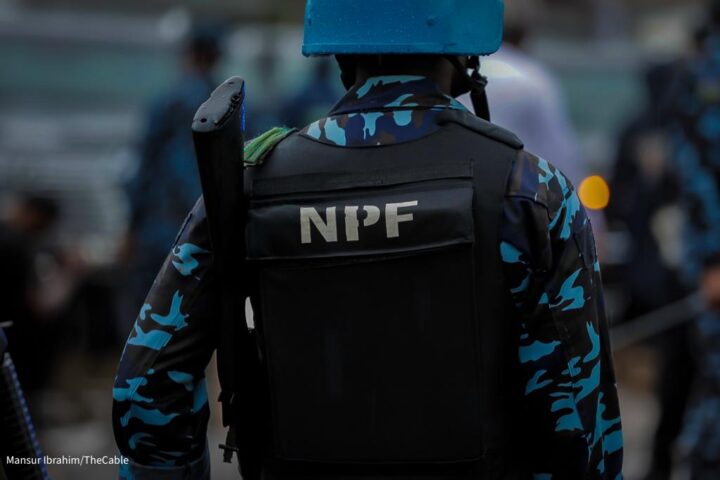The Ministry of Justice led by Abubakar Malami, Minister of Justice and Attorney-General of the Federation, mismanaged over N113.2 million in 2019, the Office of the Auditor-General of the Federation (OAuGF) has revealed.
The money, according to the OAuGF audit report, was spent on payment of contractors without supporting documents, payment of unapproved expenditures, etc., Premium Times reports.
Adolphus Aghughu, the Auditor-General of the Federation, submitted the report titled ‘Non-compliance/Internal Control Weakness Issues in Ministries, Departments and Agencies of the Federal Government of Nigeria for the Year ended December 2019’ to the clerk of the National Assembly in accordance with section 85(2) and (4) of the Nigerian constitution.
Contained in the report are details of 12 payments totaling N35,776,700 diverted from the ministry’s 2019 capital vote and paid to officials.
READ ALSO: Buhari Contradicts AGF Malami, Weakens ECOWAS Court Defence With Independence Day Address
The money, originally meant for capital projects, was spent on air tickets, boot camp registration, servicing of monthly meetings, workshop fees and conferences.
The report further states that “N30 million was raised as cash advance to an officer of the ministry”. This cash advance for a conference later turned out to be a virtual meeting held in 2019, the report was said to have revealed.
The officers that attended the conference were from the south-south states, and from different agencies and commands. However, the report states that “Their offices should have catered for their logistics and other benefits instead of the (Justice) ministry”.
READ ALSO: IGP Queries Abba Kyari Over Panel Report as Malami Decides Extradition
These illegal spendings, the report says, violated the provision of Paragraph 316 (iii) & (iv) of the Financial Regulations, which states, “Virement from one Head of Account in the Recurrent Expenditure estimates to another Head of account in Capital Expenditure estimates shall not be allowed and vice versa…All applications for virement shall be collated by the Minister of Finance and submitted to National Assembly for approval before virement warrant shall be issued”.
It describes the spendings as a likely case of misapplication of funds and diversion of public funds.
N53.8 MILLION VANISHES INTO THIN AIR
The report states that the ministry was unable to defend over N53.8 million raised and paid to contractors for procurements in 2019.
It says “Nine payment vouchers amounting to 53,797,299.50, for works and procurement were raised in 2019 and paid to contractors”, while “relevant supporting documents, such as approvals, invoices/receipts, letters, store receipt vouchers, store issue vouchers, project files were not presented for examination.”
Inability of the ministry to provide relevant documents to back its spending raised concerns of likely “diversion of public funds”.
The report cited a breach of paragraph 603(i) of the Financial Regulations, which states, “All vouchers shall contain full particulars of each service, such as dates, numbers, quantities, distances and rates, so as to enable them to be checked without reference to any other documents and will invariably be supported by relevant documents such as local purchase orders, invoices, special letters of authority, time sheets, etc”.
N26.3 MILLION VOUCHERS GO MISSING
“Fourteen payment vouchers amounting to N23, 581, 944.20 (Twenty three million, five hundred and eighty one thousand, nine hundred and forty four naira, twenty kobo) paid between July to December 2019 were not presented for audit examination,” the report states.
The “anomaly” was a breach of paragraph 601 of the Financial Regulations, which stipulates, “All payment entries in the cash book/accounts shall be vouched for on one of the prescribed treasury forms. Vouchers shall be made out in favour of the person or persons to whom the money is usually due. Under no circumstances shall a cheque be raised, or cash paid for services for which a voucher has not been raised”.
“The above anomaly could be attributed to weaknesses in the internal control system at the Federal Ministry of Justice,” the report states, adding that it raises concerns about “misappropriation of funds” and “payment for unapproved expenditure”.
EXPENDITURES WERE CAPTURED IN 2019 CAPITAL APPROPRIATION BILL – MINISTRY OF JUSTICE
On the N35.8 million capital vote, the audit report reveals that the management of the Federal Ministry of Justice claimed that all the expenditures were “captured in the 2019 Capital Appropriation Bill of the ministry and they were duly approved as contained in the appropriation acts for the year under consideration”.
On the N53.8 million spent without supporting documents, the audit report states, ”The management said there was an urgent need for an award and execution of those contracts in order to salvage lives and properties in the public interest due to the siege of possible attack by the protesters” at the time.
READ ALSO: After Dataphyte’s Investigation, FG Confirms RCC’s Blasting in Ogunmakin is Unethical
“We are not unaware of the facts that those contracts were supposed to go through the procurement planning committee in compliance with the due process procedures,” the management is quoted to have said.
On the N23.6 million vouchers not presented for audit, the report states that the management claimed that the violation of the Financial Regulations 629, as stated, “was not deliberate”.
The audit report asks the Solicitor-General and Permanent Secretary, who is the accounting officer of the ministry to “Furnish reasons for payment of allowances for a conference that was held virtually and payment to officers of another agency”.
The Permanent Secretary is asked to “Account for the sum of N35,776, 700 transferred from capital vote to finance overhead expenditure”.
He is told to “Recover the sum of N30 million paid as advance as the retirement documents are flawed with irregularities”.
The report further asks the Solicitor-General to “recover and remit the sum of N53,797,299.50, as well as the sum of N23,581,944.20, to the treasury”.
If the payment cannot be substantiated, the report recommends that sanctions relating to irregular payments be applied as stipulated in paragraph 3106 of the Financial Regulations.
Subscribe
Be the first to receive special investigative reports and features in your inbox.















